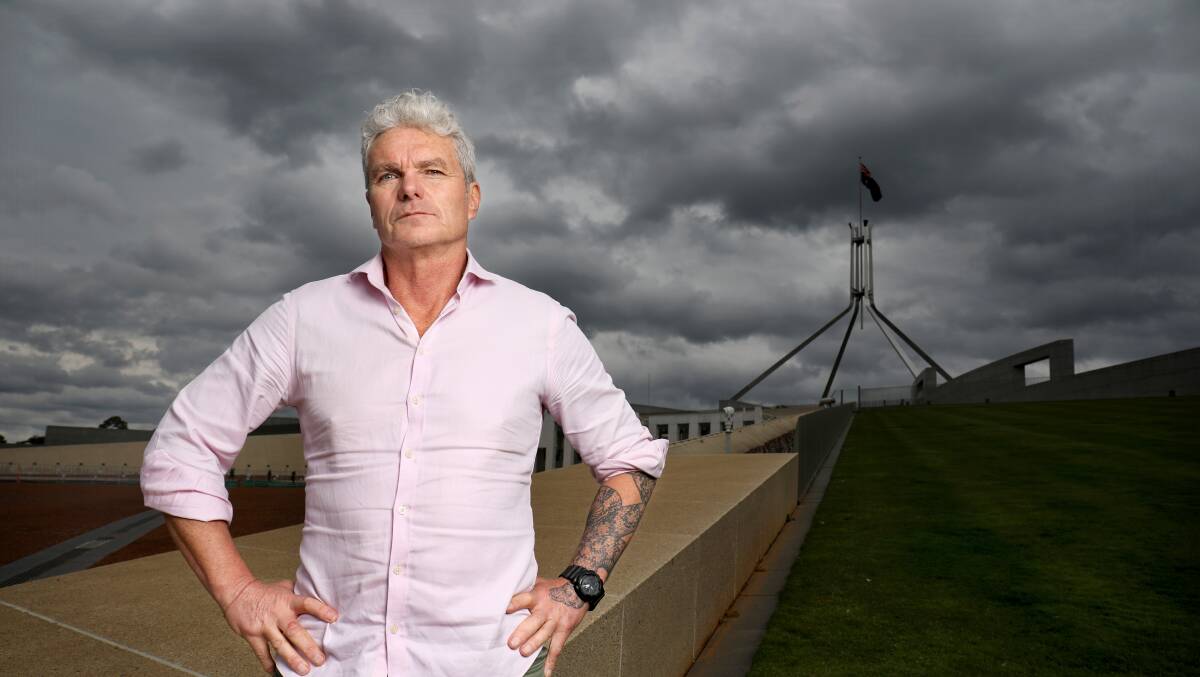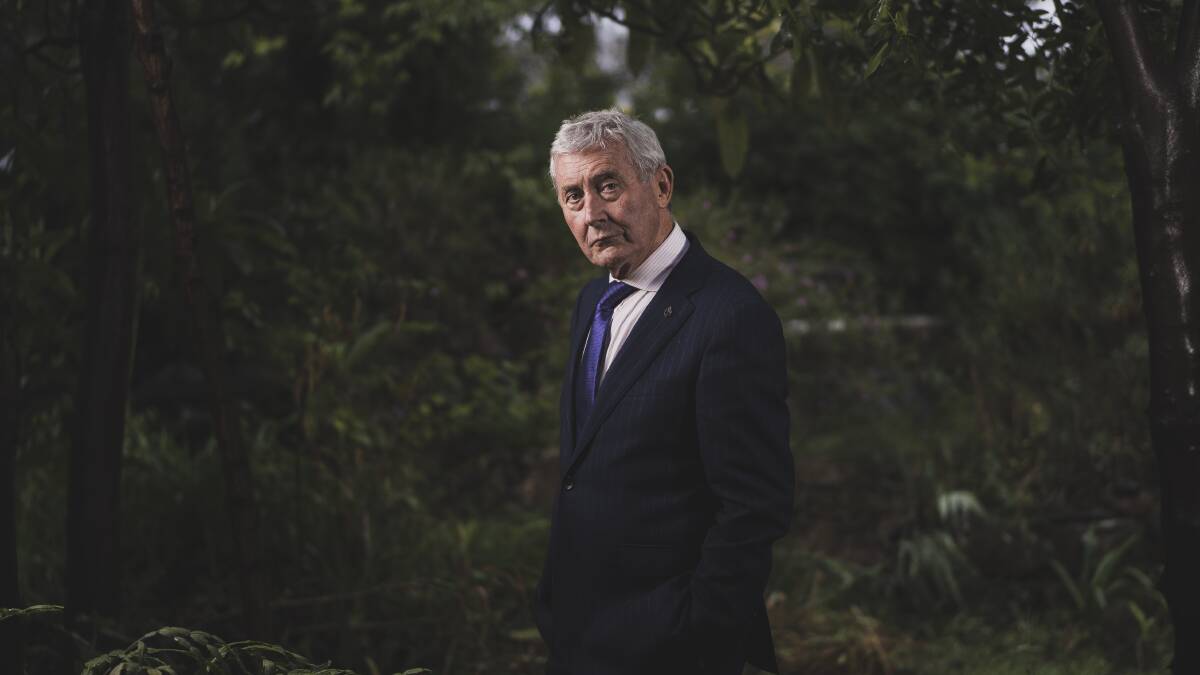
Two of Australia's most prominent whistleblowers are calling for the new government to urgently beef up protections for people shining a light on wrongdoing, warning it remains a "dangerous" choice for many would-be whistleblowers.
Subscribe now for unlimited access.
or signup to continue reading
It is expected the federal government will introduce its much-anticipated national anti-corruption commission bill this week as crossbenchers demand the proposed legislation include stronger whistleblower protections.
Former Australian Defence Force lawyer, David McBride, who exposed alleged war crimes in Afghanistan, welcomed the integrity body as a "great step" but cautioned those who come forward still faced a long and difficult road without support avenues.
Eminent Canberra lawyer, Bernard Collaery, who until recently, was pursued by the Commonwealth for his role in shedding light on the Timor-Leste bugging saga, agreed additional tweaks were also needed for national security matters.
The Albanese government will bring the anti-corruption model to the lower house on Wednesday as it takes its first steps toward delivering the key election promise.
But Attorney-General Mark Dreyfus has promised whistleblower protection reforms would be unveiled in the "coming months" and he was considering calls to establish a dedicated protection authority.
The public interest disclosure law, first introduced by Mr Dreyfus in 2013, has been heavily criticised by experts for being too legally complex and limited in offering support avenues, ultimately failing those who do come forward.
READ MORE:
Mr McBride said without those issues being addressed first, the proposed federal ICAC would leave would-be disclosers with a tough - even "dangerous" - choice to make in the interim.
The former Army lawyer is being prosecuted by the Commonwealth for leaking a series of confidential documents to ABC journalists, which led to an investigative report revealing the war crime allegations.
His case, along with that of Australian Taxation Office whistleblower Richard Boyle, remain a deterrent to others seeking to reveal wrongdoing, he said.
"It's not at all a safe environment for whistleblowers," Mr McBride told The Canberra Times.
"But it's important that we put on a brave face because future whistleblowers are watching us.
"Other people will hopefully come after us and it will be easier for them."
Details of the anti-corruption model the Albanese government will put forward are yet to be revealed but it's expected the Public Interest Disclosure Act will be used to protect those who come forward against reprisals, such as being sacked.
Views differ among integrity advocates on the urgency of reform but integrity expert, and Transparency International Australia board member, Professor AJ Brown said the disclosure laws would be sufficient for now.
"The NACC should be added from the word go to make [the protections] quite clear," he said.
"So as long as it takes to to reform the PID Act and to get a whistleblower protection commissioner, at least the current regime will apply."
However, Mr McBride, who is looking to defend against the charges by arguing his actions were justified under the Public Interest Disclosure Act, said the existing process was totally unworkable.
Instead, the formation of a dedicated whistleblower protection authority would provide a "breath of fresh air" for truth-tellers.
The lack of such a system, he said, is what led him to taking his findings to the last resort - the media.
"There's a gap in the law where there is nowhere for people within organisations ... can get an independent body to look at their problem," Mr McBride said.
"The problem with internal complaints is that they end up being judged by the people that you're complaining about."

The sentiment is backed up by Mr Collaery, who said a similar model - a well-funded and truly independent watchdog - was crucial for national security matters as well.
"The intelligence agencies obviously require very careful public interest disclosure protections. Much of the agency's work genuinely requires protection from public disclosure," Mr Collaery told The Canberra Times.
"There has to be the creation of a specialist panel of neither directly nor indirectly involved parties in screening such complaints."
Mr McBride is expecting his case will be tested in the courts, where he hopes the outcome will justify the past half decade since his public disclosure.
But he remains concerned his story, and those of other high-profile whistleblowers, will make those considering coming forward to any new anti-corruption watchdogs think twice.
"Richard Boyle and I have been pretty well resourced and Bernard is a very well-respected lawyer," he said.
"But even if we get through it, other people will be going 'shit, that's a bit of a long road'.
"It's by no means an easy road for whistleblowers, whether there's an ICAC or not."


